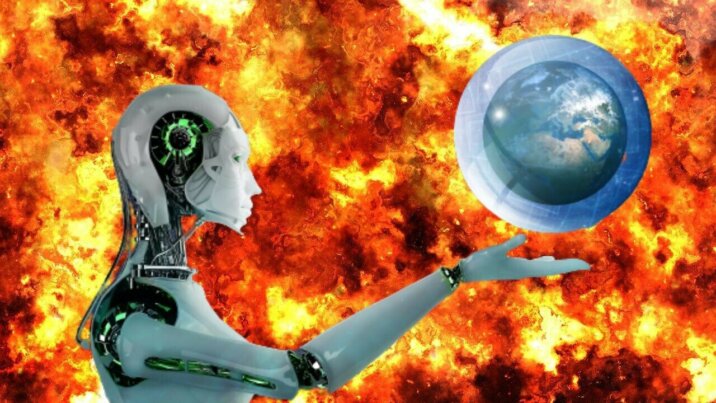
Artificial Intelligence (AI) could be a catalyst for human extinction, according to a recent warning issued by several AI experts. However, this alarm has also sparked some backlash against an arguably overemphasized focus on the hypothetical dangers of AI. The cautionary statement, signed by some of the industry’s biggest names, only adds to a series of warnings that have been issued regarding AI.
The statement, published Tuesday, was posted on the website of the Center for AI Safety, a San Francisco-based nonprofit organization. It reads: “Mitigating the risk of extinction from AI should be a global priority alongside other societal-scale risks such as pandemics and nuclear war.” Almost 400 people, including notable AI industry figures like Sam Altman, CEO of OpenAI, and top AI executives from Google and Microsoft, have endorsed the statement. It also carries the signatures of 200 academics.
This most recent warning is stirring controversy and causing a growing number of individuals to question whether there’s too much emphasis being placed on the purported dangers of AI, which they deem to be exaggerated.
Meredith Whittaker, president of the encrypted messaging app Signal and chief adviser to the AI Now Institute, a nonprofit group advocating ethical AI practices, ridiculed the statement as an example of tech leaders overhyping their products.
In contrast, Clément Delangue, co-founder and CEO of AI firm Hugging Face, edited the statement to replace “AI” with “AGI,” or artificial general intelligence. AGI refers to a theoretical AI version that could match or even surpass human capabilities.
The Internet Patrol is completely free, and reader-supported. Your tips via CashApp, Venmo, or Paypal are appreciated! Receipts will come from ISIPP.
This cautionary statement comes on the heels of a petition signed two months ago by a separate group of AI and tech leaders, including Elon Musk, Steve Wozniak, and Grady Booch. They called for a “pause” on all large-scale, publicly accessible AI research. However, none of them have signed this new statement, and no such pause has been implemented.
Altman, an advocate for AI regulation, recently won favor in Congress. Earlier this month, he hosted a private dinner with numerous House members and attended a friendly Senate hearing, where he was warmly received by members of both parties.
Despite his advocacy for regulation, Altman has expressed concerns about overregulation. Just last week, he mentioned that OpenAI might consider withdrawing from the European Union if AI regulation becomes too stringent.
Although the White House has unveiled some plans to address AI, there’s no immediate indication of plans for extensive regulation of the industry in the United States.
Gary Marcus, a prominent AI critic and professor emeritus of psychology and neural science at New York University, argued that focusing solely on a hypothetical worst-case scenario can be distracting. He emphasized that while AI does pose real potential threats, other risks that deserve attention are being overlooked.
Several tech experts have pointed out that more immediate, mundane uses of AI could pose a more significant threat to humanity. Microsoft President Brad Smith expressed deepfakes and their potential misuse for disinformation as his main concerns about the technology.
Last week, an ostensibly AI-created image depicting an explosion near the Pentagon circulated on Twitter, leading to a temporary dip in markets.
The Internet Patrol is completely free, and reader-supported. Your tips via CashApp, Venmo, or Paypal are appreciated! Receipts will come from ISIPP.









